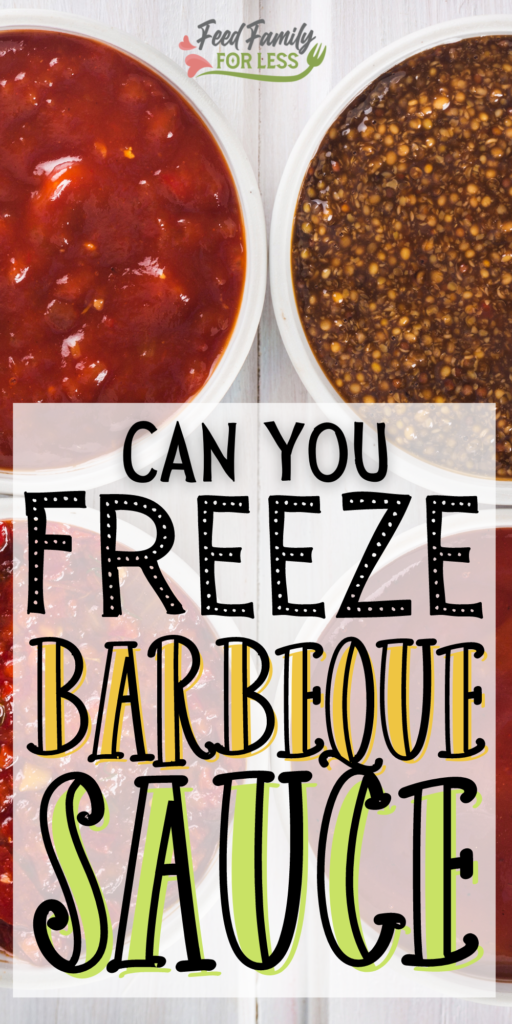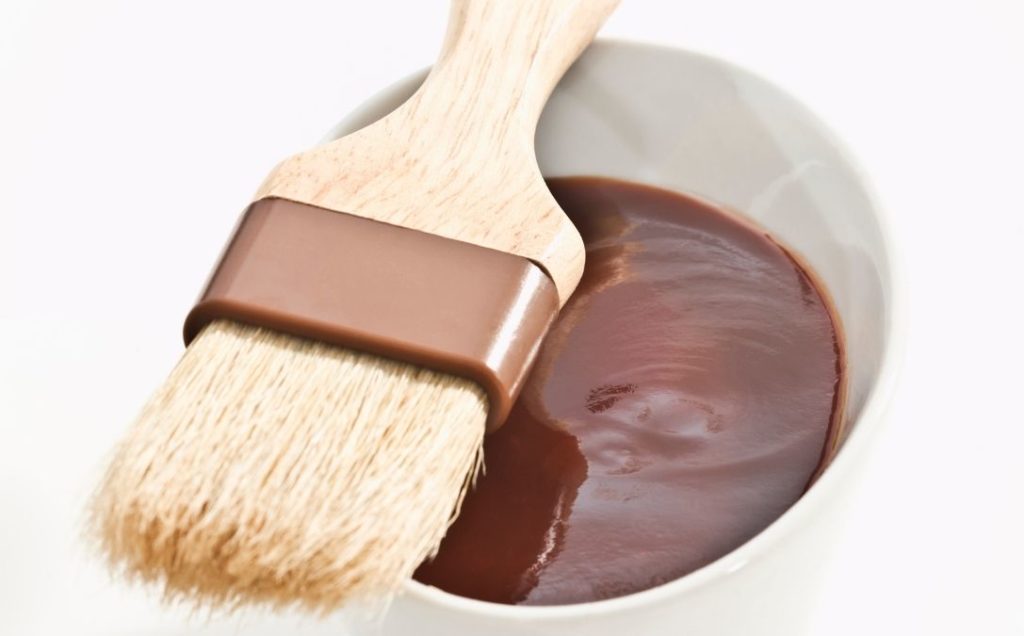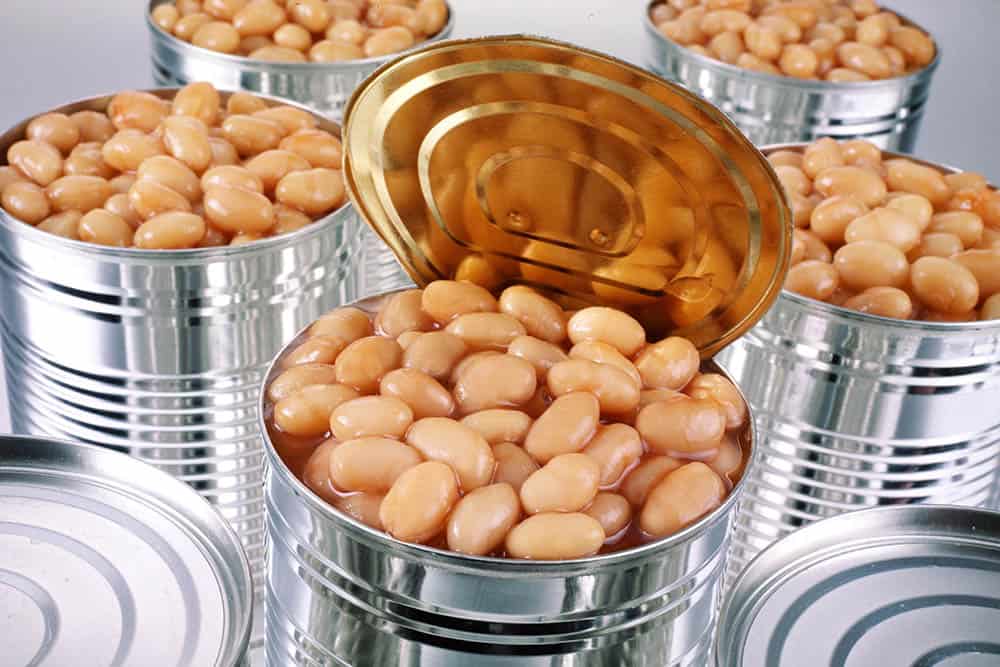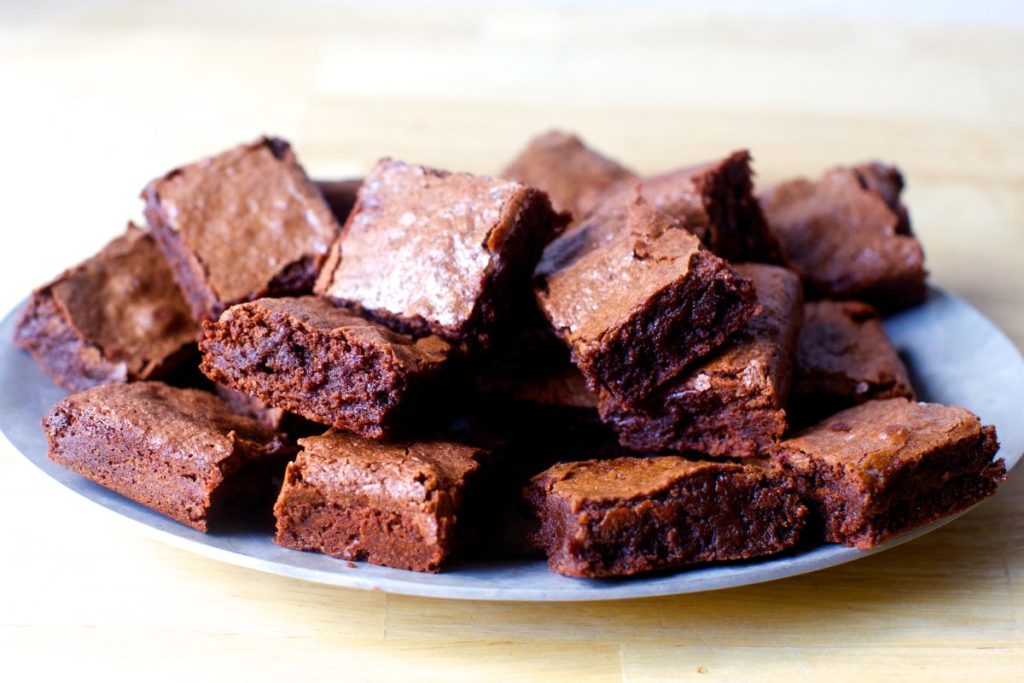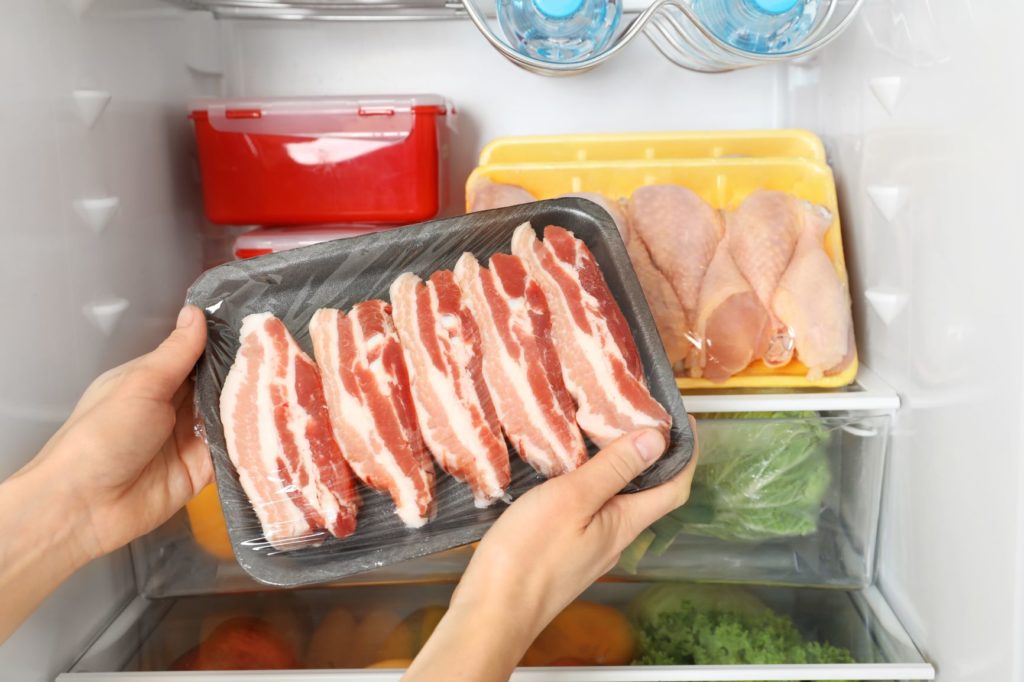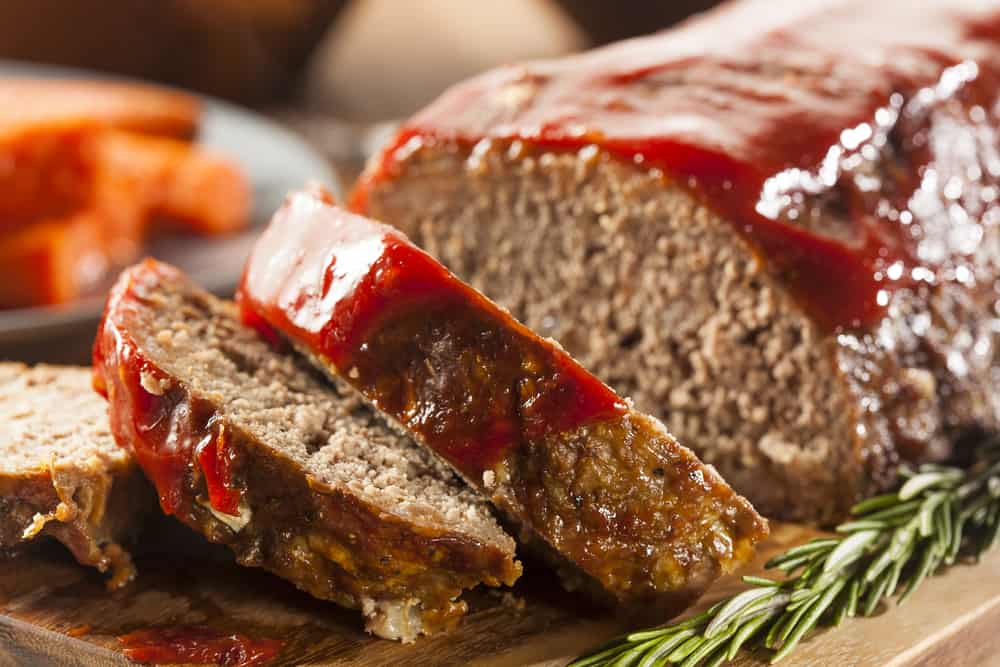Can you freeze BBQ sauce? How do you preserve BBQ sauce? How long can BBQ sauce last in the freezer? What recipes can I make with BBQ leftovers?
In this guide, I will answer all the questions that may have bothered your mind and provide practical tips for freezing BBQ sauce. So keep on reading for more information:
This post may contain affiliate links. Read my disclosure policy here.
Can You Freeze BBQ Sauce?
Yes, you can freeze BBQ sauce, but the quality may change upon thawing. If you prefer homemade BBQ to ready-made, the chances are that you’ll prepare in bigger batches, which calls for freezing.
It’s the most convenient way to ensure BBQ sauce stays fresh for an extended period. Learn how to prepare and freeze this mouth-watering BBQ sauce to utilize all the fresh tomatoes in season.
Freezing BBQ sauce is pretty simple. Transfer the bbq sauce into a freezer bag once it’s ready for freezing, making sure to squeeze out as much air as possible. Done right, frozen BBQ can last up to three months.
Freezing Barbecue Sauce
Whether you are preparing classic marinara or barbecue sauces, it’s easy to determine the end product. Fortunately, it’s also simple to freeze sauces. Most sauces are freezer-friendly, including meat sauces, bechamel sauces, and tomato-based sauces.
Again, the freezing process is dead simple. But before you pack your freezer with these freshly made sauces in your kitchen, it helps to learn about the shelf-life, preventive measures for freezer burn, and the best defrosting method.
Whether you’re preparing meals or looking to preserve leftover sauces, these easy peasy tips will help you safely freeze bbq sauces.
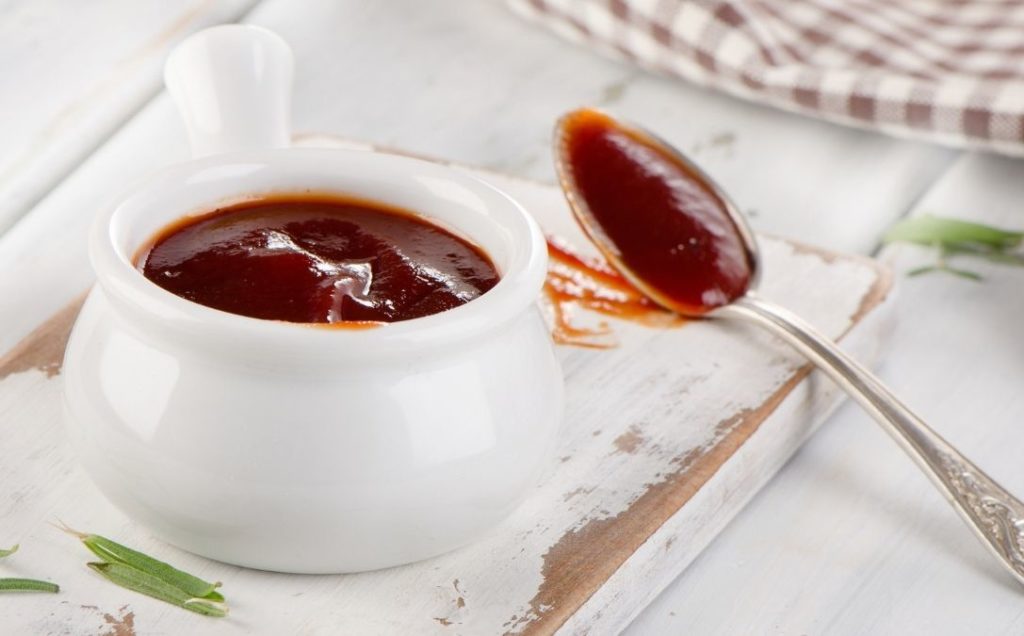
Practical Tips For Freezing and Preserving BBQ Sauce
Let it Cool Down Completely
The first step once you’ve prepared your sauce is to let it cool down completely. Room temperature sauces can safely go into the freezer, but a hot or warm sauce interferes with your freezer’s overall temperature.
Food safety rules recommend cooling down food to temperatures between 120 and 70 degrees in the first two hours of cooling, then 70 to 45 degrees F in the first four hours of cooling.
In practice, leave your sauce at room temperature for two hours, then put it in the refrigerator until cool. Alternatively, transfer the sauce into a container, then place the whole container into a large bowl filled with icy water. Stir the sauce periodically to incorporate cool air, then store appropriately.
Choose the Right Containers
Next, select the suitable containers for your sauces. Don’t freeze any food item, including sauces, in glass containers, as they could easily break if the food inside expands upon freezing. Tupperware, plastic containers, or freezer bags are great substitutes for glass containers.
When freezing in bigger batches, consider how you plan to use your sauces upon defrosting and divide them accordingly.
If you plan to serve small quantities, ice cube trays or tiny freezer bags mighty come in handy. Not only will this maximize space in your freezer, but it will also save you the hassle of defrosting individual portions.
You will also want to use a container with minimum room for air circulation to prevent freezer burn. Another option is to remove as much air as possible in the storage containers.
How Long Will BBQ Sauce Last in the Freezer?
When done right, refrigerated BBQ sauce can last between three to four days. As for the frozen sauce, you can anticipate six months shelf life or even more, but the flavor may vary, and you run a higher chance of freezer burn.
How to Defrost Sauces
The best way to defrost sauces is by gradually thawing your sauces in the refrigerator. It takes much longer, but rest assured to keep your sauces at safe temperatures.
If you want the process to be a little faster, place the sauce’ container inside a large bowl and run cold water until thawed. Refrain from using hot water as it can bring the sauce to an unsafe temperature.
It’s also worth noting that the thawing process will vary depending on the type of sauce. For example, cream-based sauces, such as bechamel, may disintegrate upon defrosting. If that happens, simply reheat the sauce while whisking to bring it back together.
Lastly, if your sauce has meat, consider thawing it in the refrigerator, then reheat at 165 degrees F to alleviate the chance of foodborne bacteria.
While most sauces can be frozen and thawed efficiently, don’t freeze emulsified sauces like mayonnaise or homemade vinaigrette because they do not thaw well and do not hold to their original flavor, as well as texture.
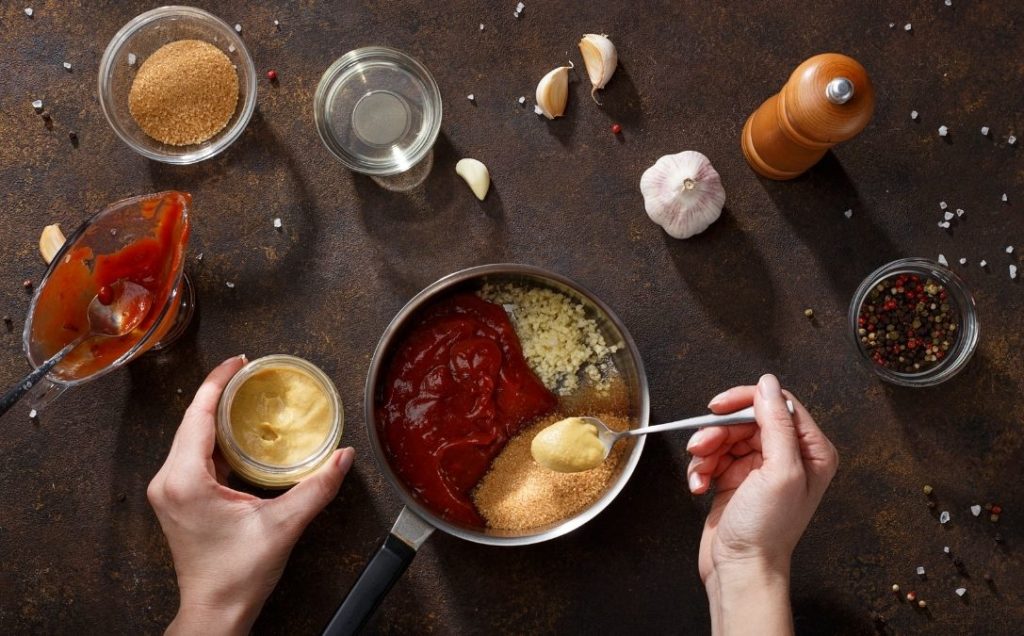
Recipe Ideas For Homemade BBQ Sauce
If you’re kitchen savvy, it could be more fun to try out these recipes with your delicious homemade bbq sauce:
- BBQ Shredded Beef Sandwiches: Is fall-apart tender your cup of tea? Prepare these fantastic shredded beef sandwiches in the Slow-cooker.
- Slow-Cooker Pork Sandwiches: With a few ingredients, try this recipe in the Instant Pot to give your pork sandwiches a fall-apart tender.
- Country-Style Barbecue Ribs: BBQ ribs get nice scorch under the broiler. Then, use a Slow Cooker to enhance their tenderness. Eat them with a side dish or shred them on a bun.
- BBQ Chicken and Apple Bread Pudding: Bread pudding is the epitome of classic foods and is best used as a dessert. This sweet and tangy bbq sauce adds a twist to this recipe.
- Grilled Marinated Ribeyes: These juicy steaks are often preferred for camping and picnics. For efficiency, dip them in the tangy, bbq-inspired marinade and leave them overnight. And voila! Your hearty dinner is ready to grill up the following day.
- Barbecued Onion Meat Loaves: Stuffing and onion soup are the primary ingredients in this recipe to make your meatloaves super delicious.
Storing BBQ Sauce
You can either use freezer bags, freezer jars, or containers for packaging your BBQ sauce in the freezer.
If you are using freezer bags or containers for freezing:
- Cool your sauce adequately before transferring it into the containers to prevent chemicals from leaching into your food. Hot sauces will melt the freezer bags, or even worse, burn them.
- Leave some space for expansion while freezing your sauce.
- Place your freezer bags flat in the freezer to allow your sauces to freeze evenly.
If you decide to freeze your sauce in jars, here are a few tips to bear in mind:
- Use flat-sided jars for smaller batches and wide jars for bigger batches. Avoid using cornered jars to reduce the chance of breaking inside the freezer.
- Leave significant room for expansion as you freeze your sauce in the jars. When filling your jars, be sure to leave about an inch from the top of your jar. Foods tend to expand while freezing; that’s why leaving some space is necessary.
- Ensure your sauce has cooled down entirely or refrigerated before putting it in the jar. A sudden temperature change will result in cracking.
- Finally, place your jars upright in the freezer, preferably at the freezer doors, so they freeze gradually and evenly.
There’s no specific amount to freezing BBQ sauce – you can either choose to freeze in smaller or bigger batches. However, it’s recommended to freeze in portions that you always use in recipes.
Anytime you want to use your BBQ sauce, simply take it out from the freezer and refrigerate for at least a day for effective thawing. If you plan to use it for dinner, start defrosting your sauce in the morning or a day before the actual cooking. If you’re using freezer bags to store your bbq sauce, defrost it by placing it in warm water.
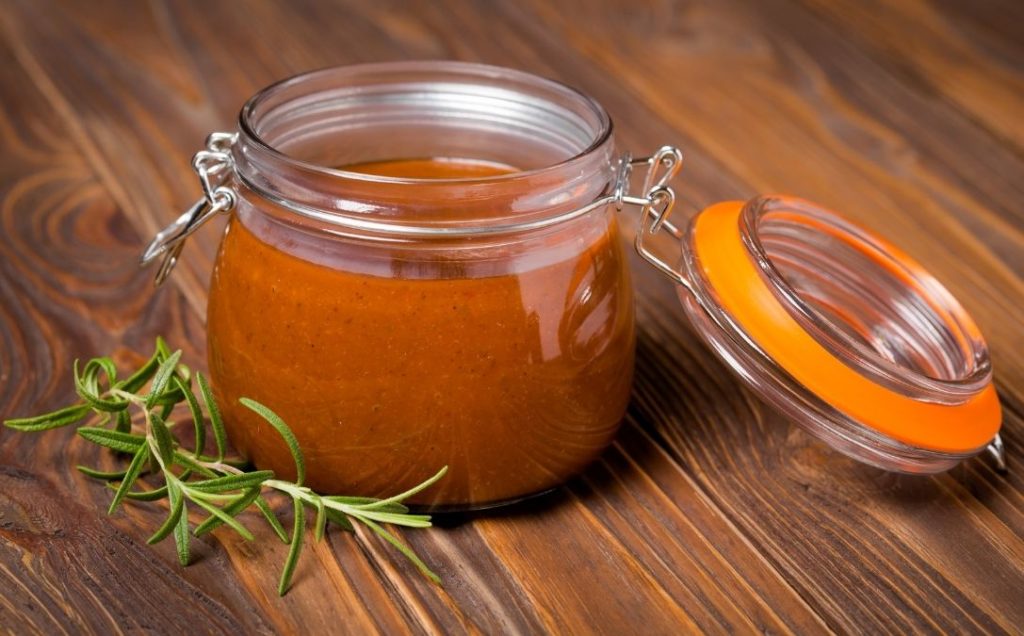
Frequently Asked Questions about BBQ Sauce
1. How Do You Preserve BBQ Sauce?
Fill an ⅛ inch of your clean, sterilized glass jars with hot barbecue sauce and place them in a water bath for 15 minutes. Make sure to submerge the containers two inches deep inside the boiling water for the best results.
2. What is the Best Way to Freeze Sauce?
Freeze your sauces in Tupperware, plastic containers instead of glass containers. Also, consider freezing in smaller batches and portion your sauces accordingly.
If you plan to use small servings, then ice cube trays or snack-size freezer bags might be of help. Above all, observe the proper measures for complete effectiveness.
3. Can you Get Sick From Expired BBQ Sauce?
No, you cannot get sick from consuming an expired BBQ sauce. As with other sauces, BBQ sauce has a best by date and not a use-by date. This means that you can safely use your BBQ sauce to enhance your favorite meals or snacks even after the best by date has expired.
4. What Happens If You Eat Expired Sauce?
If you eat a sauce beyond the expiration date, chances are you will develop symptoms of foodborne illness since the product is considered spoilt. These symptoms include fever, diarrhea, nausea, vomiting, chills, and stomach cramps. If you notice any of the above symptoms upon eating an expired sauce, seek medical attention.
5. How Do You Preserve Jar Sauces?
- Sterilize your jars in a preheated oven at 140 degrees Celsius for at least 20 minutes. Be sure to sterilize the lids too.
- Fry all your fresh ingredients at extreme temperatures.
- Into a large pot, slow cook the remaining ingredients at low temperature.
- Fill your sterilized jars with hot sauce.
- Once filled, place the jars in a preheated oven with their lids loosely on at 140 degrees Celsius for half an hour.
- Remove the jars from the oven and tighten the lids to prevent air circulation.
Bottom Line
I hope you found this guide helpful and that I addressed all your concerns about freezing BBQ sauce.
Now, you don’t have to throw away your bbq sauce leftovers with the many recipes out there. You can freeze it for as long as you wish as long as you follow the right approach.
Over to you: have you ever frozen BBQ sauce before? What was your experience? Please share your experiences in the comment section.
